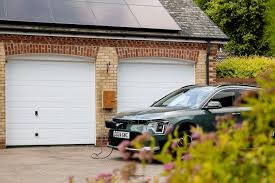UK moves asylum seekers to barge despite humanitarian concerns

London: The United Kingdom has begun moving some asylum seekers onto a large residential barge on its southern coast, as part of plans to use cheaper alternatives to hotels as temporary accommodation while asylum claims are processed.
The government says it wants to limit the pull factors attracting asylum seekers to Britain, where more than 50,000 are currently living in hotels after they made the final part of their journey in small dinghies across the English Channel.
Plans to use barges and disused military sites have drawn protests from local communities however, with some complaining over the possible impact to services and questioning whether the sites will become targets for protests.
Others have described the housing for people arriving from countries such as Iraq, Iran, Syria, Afghanistan or Albania as inhumane.
“The people being loaded onto the Bibby Stockholm have fled some of the world’s worst horrors. Warehousing them on this floating firetrap is a disgraceful way to treat human beings. Today is a dark day for our country,” said Bell Ribeiro-Addy, a politician with the opposition Labour Party.
Sarah Dines, a minister at Britain’s interior ministry, told Sky News earlier on Monday that the barge formed part of a plan to increase the number of sites the government could use to house migrants after the bill for hotels rose to 6 million pounds ($7.7m) a day.
“What it sends is a forceful message that there will be proper accommodation but not luxurious,” she said.
The government has said the Bibby Stockholm barge will only house single men and provide “basic and functional” accommodation, along with healthcare provision, catering facilities and onboard security.
On Monday, about 50 migrants were due to move to the vessel. A person familiar with the situation said they had started arriving around midday.
“The welfare of asylum seekers in our care is of the utmost importance,” a spokesperson for the interior ministry said.
“[We] continue to work closely with the local police and our partners on the ground to ensure the safety of any individuals housed on the site and the wider community.”





